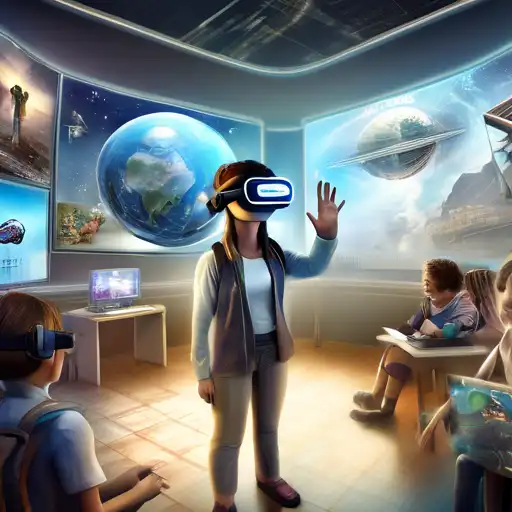Introduction to Virtual Reality in Education
Virtual Reality (VR) is rapidly transforming the educational landscape, offering immersive learning experiences that were once beyond imagination. This technology enables students to explore historical sites, dissect virtual frogs, or even travel through space, all from the safety of their classroom. The potential of VR in education is limitless, providing a dynamic and interactive way to engage students.
The Benefits of VR in Learning
VR in education offers numerous benefits, including enhanced engagement, improved retention rates, and the ability to simulate real-world scenarios. Students can practice complex procedures in a risk-free environment, making VR an invaluable tool in fields such as medicine and engineering. Moreover, VR caters to various learning styles, ensuring that every student can benefit from this innovative technology.
Challenges and Considerations
Despite its advantages, integrating VR into education comes with challenges. The cost of VR equipment and the need for technical support can be prohibitive for some institutions. Additionally, educators must be trained to effectively incorporate VR into their curriculum. However, as technology advances and becomes more accessible, these obstacles are gradually being overcome.
Future Prospects of VR in Education
The future of VR in education looks promising, with ongoing developments aimed at making VR more interactive and personalized. As EdTech continues to evolve, VR is expected to play a pivotal role in shaping the future of learning. From virtual field trips to hands-on training, VR is set to redefine educational experiences for students worldwide.
Implementing VR in Your Classroom
For educators interested in integrating VR into their teaching, starting small is key. Begin with simple VR experiences that complement your existing curriculum. Resources such as digital education platforms can provide guidance and support. As you and your students become more comfortable with the technology, you can explore more complex VR applications.
Conclusion
Virtual Reality is not just the next frontier in education; it's a revolutionary tool that enhances learning in unprecedented ways. By embracing VR, educators can provide students with immersive, engaging, and effective learning experiences. The journey into VR education is just beginning, and its full potential is yet to be discovered.
